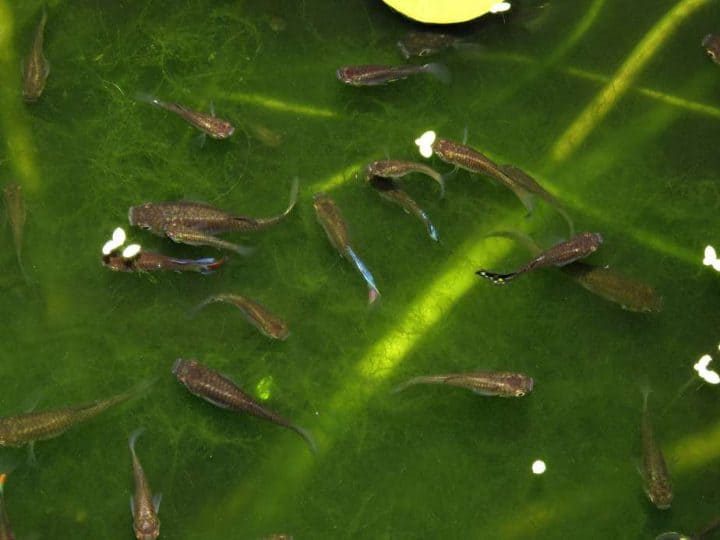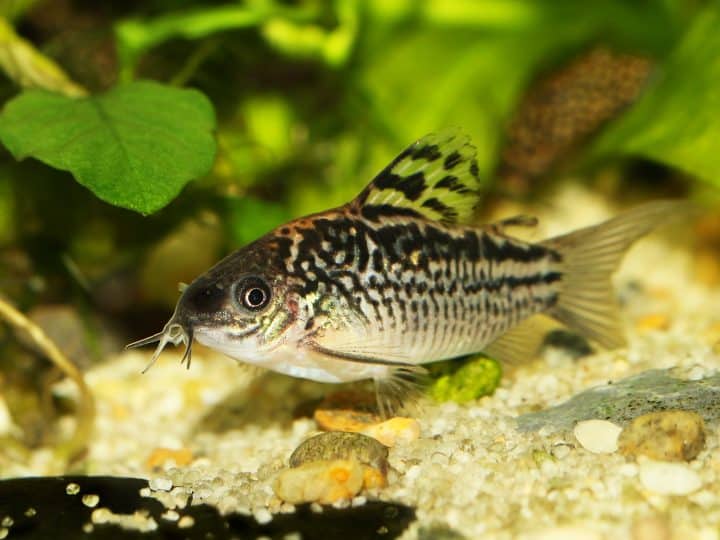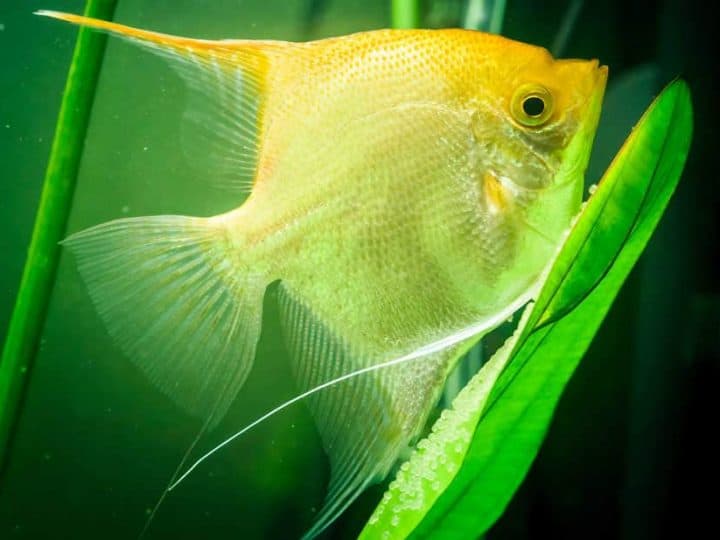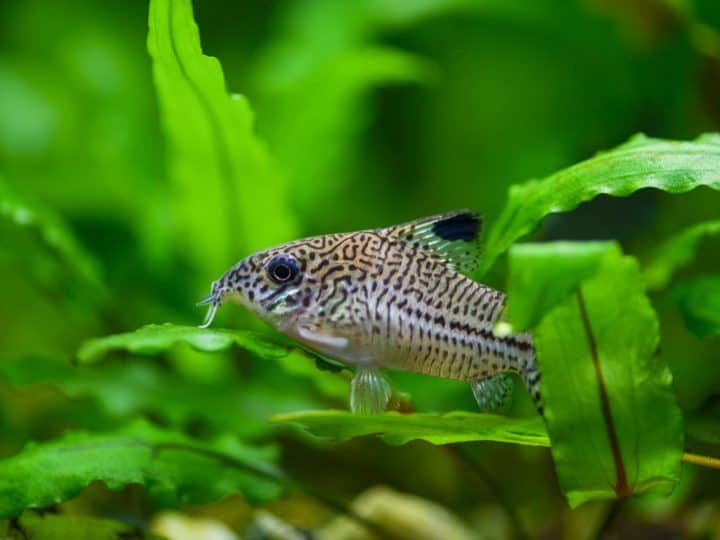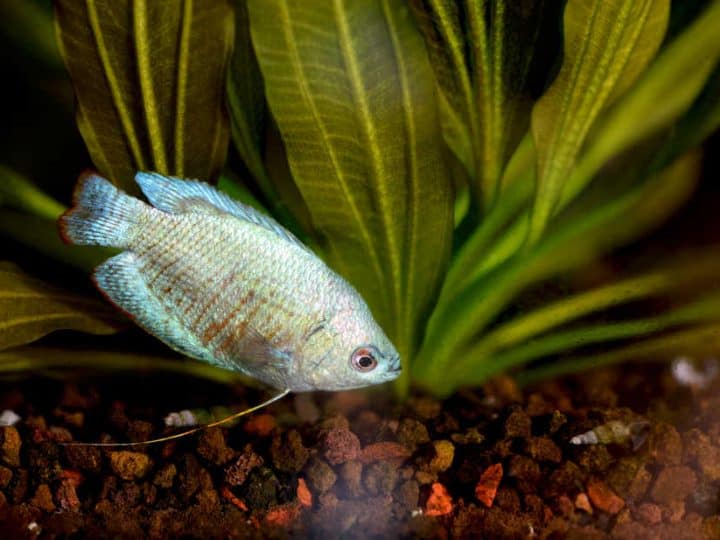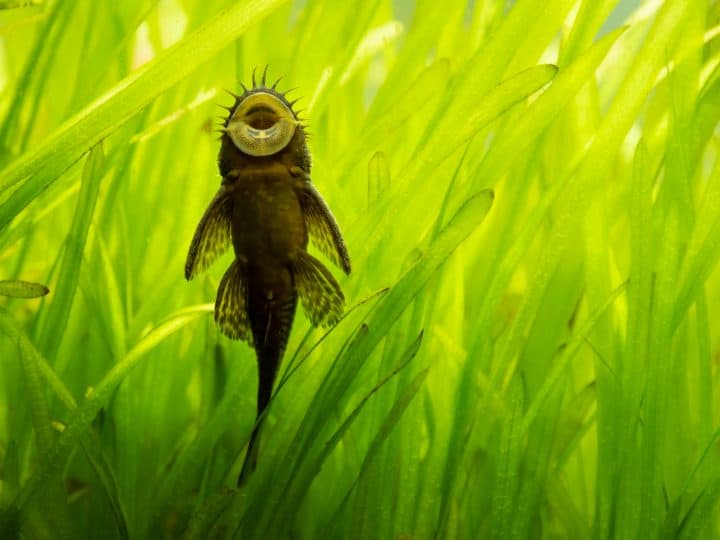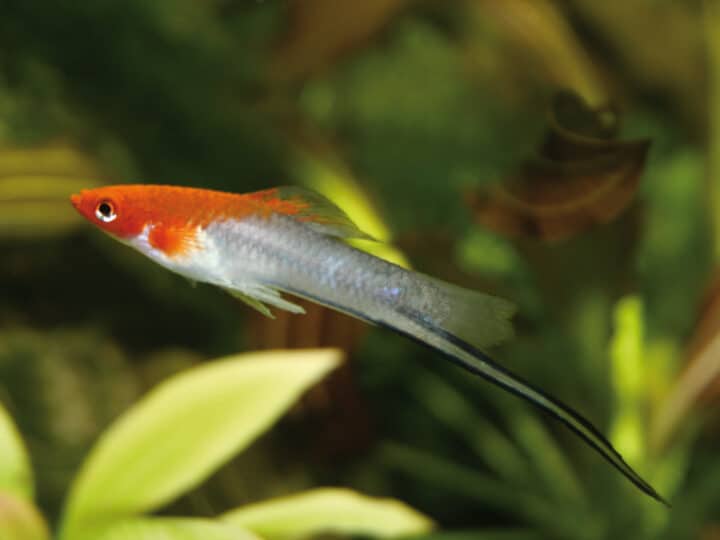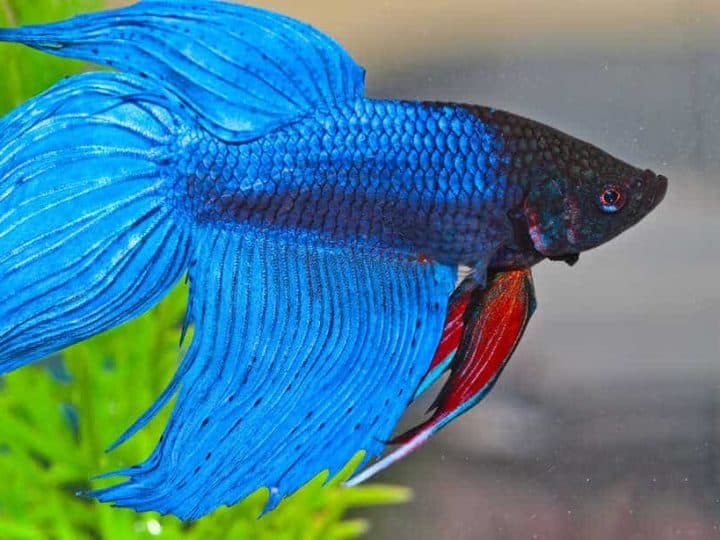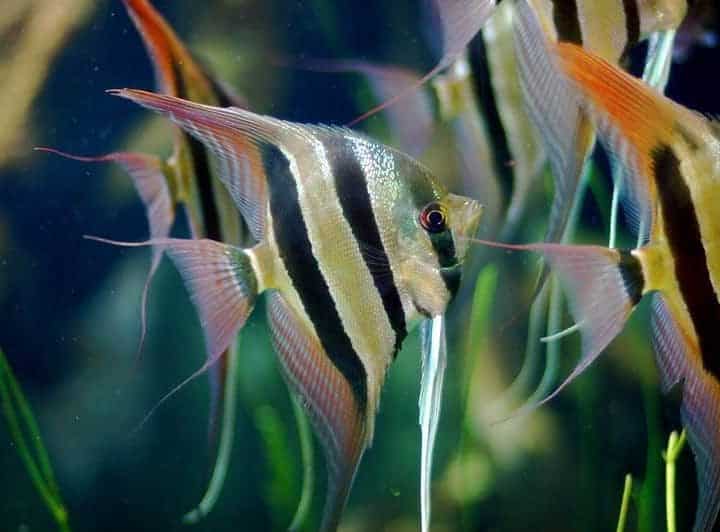Oscar fish can get pretty big, which makes me wonder what they eat. I once decided to find out by doing my research and asking a couple of experienced oscar owners. Feeding oscars is easy for several reasons, but their diet needs to be complete.
Quick Answer
Oscars are omnivores but primarily eat meaty food like insects, fish and crustaceans. The staple food in an oscar’s diet are cichlid pellets. Great supplements consist of good quality live food (like feeder fish, shrimp or meal worms) or frozen food. It’s best to feed oscars 4 times per week.
Trust me, there are many different options for you to choose from. This is great, because you can compose a varied and healthy diet, as long as you know what you are doing. All the choices can also be overwhelming, which is why I’ll briefly cover everything you need to know in order to safely feed an oscar.
The main part of an oscar’s diet: pellets or flakes
Although oscars are omnivores and will eat pretty much everything you give them, it’s important to make sure that you feed all the required nutrients. By far the easiest way is to feed commercially available cichlid food as this is designed to contain everything your oscar needs.
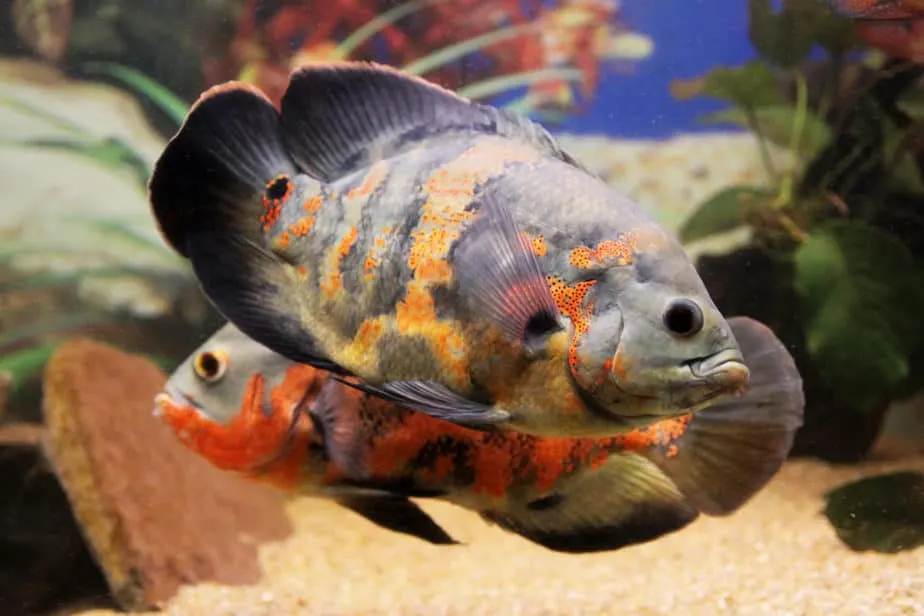
Oscars are native to South America, like many other cichlids that are kept in our hobby. One of the most popular types of food is called Hikari Cichlid Gold, which is also the food people recommended to me when I was doing my research. It’s available here on Amazon (if you order through my site I get a small commission as it is an affiliate link, for which I am grateful).
When picking your food of choice, make sure that the pellets are the right size. If your oscar is still small, you’ll need smaller pellets compared to when your oscar is older than 1 year and therefore an adult. Also, make sure the pellets float so you can easily check whether your oscar ate all the food.
Supplement the diet of an oscar with live food
If you’re new to this hobby, live food is the term used for any food that’s still alive. This includes, among other things, live insects/worms and feeder fish. While the ethics is debatable and you should do whatever you feel comfortable with, there are benefits to feeding live food.
Live food contains a lot of protein which is a welcome addition to the diet of any oscar, but so does frozen food. One true benefit is that the hunting instinct will clearly show as your oscar will have to hunt its own food. This is especially apparent when feeding small feeder fish.
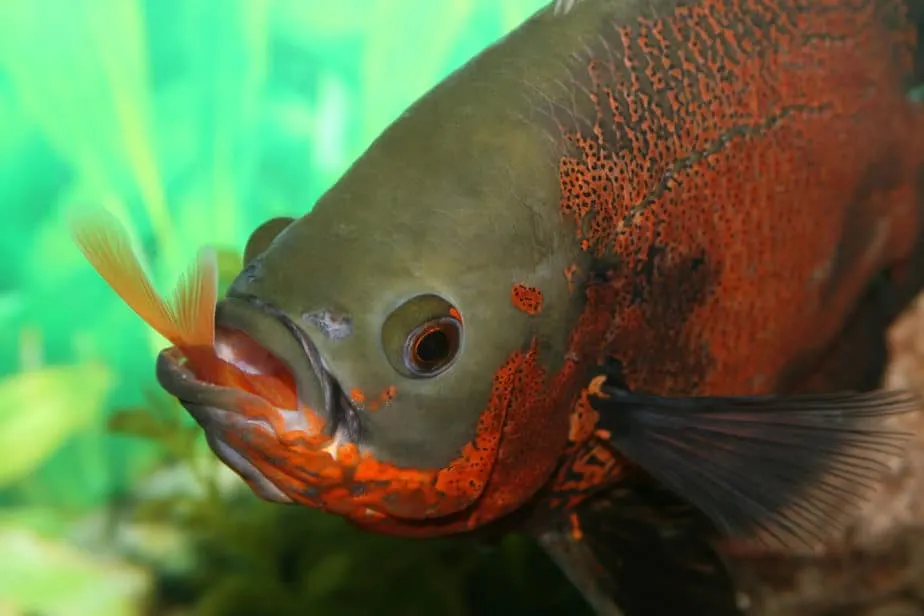
When feeding small fish, often sold in store as feeder fish, make sure they are as healthy as you can find them. This way you prevent diseases spreading from the feeder fish to your goldfish. Also, only add a couple of feeder fish at a time to prevent your oscar from overeating.
Other live food that’s great for oscars include: blood worms, meal worms, shrimp, earthworms, grasshoppers, brine shrimp, daphnia and crickets.
Never feed anything that’s too big for your oscar. This will tempt the fish into making dumb decisions and literally biting off more than it can chew.
A more manageable type of food: frozen food
At your local aquarium store they will undoubtedly sell blister packages containing frozen food. These are affordable (my local fish store has discount sales every month) and you can store them easily in your freezer. I’ll quickly go over the best options and how to prepare frozen food for your oscars.
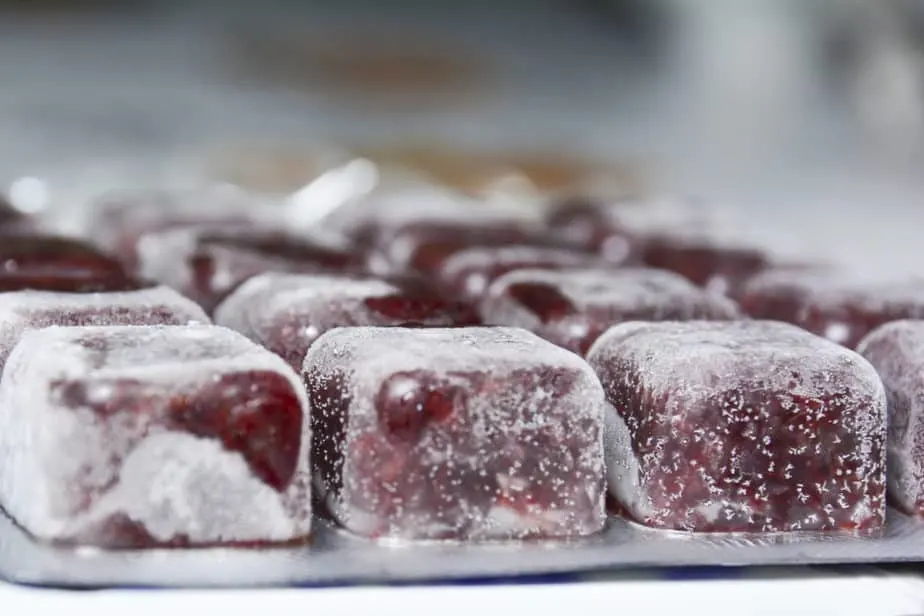
The most popular option I’ve heard people feed their oscars was frozen bloodworms, also shown in the picture above. There is a great tip that you should keep in mind when picking your frozen food of choice: don’t pick anything that’s way too small.
When feeding blocks of frozen food that fall apart in hundreds of tiny pieces, the oscar will not recognize it as food anymore. This primarily is the case for adult oscars that have grown to their full size. You could think adding the blocks straight from the blister to the tank, but this is not the right solution. Let me explain why.
In order to feed frozen food without risking exposing your oscar to health issues you’re going to need some patience. The reason for this is because you should always allow frozen food to warm up and defrost to room temperature. This is because (larger) oscars have the tendency to swallow the blocks of frozen food as a whole. When the blocks are still frozen, this can damage (essentially “burn”) the insides of your oscar.
Can oscars eat bread?
A common question that keeps popping up is whether oscars can eat bread. The short answer is no, and so is the long one. Bread does not have any wanted nutritional value, but that’s not the main point. The problem arises when bread expands after being swallowed by an oscar. This yeasty food can become multiple times its initial size, potentially cause constipation for your oscar.
Feeding bread to fish truly is dangerous and something you should never do. The same goes for rice, which also can cause constipation no matter if cooked or uncooked.
If you’re looking for an answer that’s a little bit more detailed, I would recommend you to hop over to this page on my site where I solely answer the bread question.
What vegetables can oscars eat?
As previously established: oscars are omnivores, which means they also eat plant matter in nature. While they mainly eat insects in the wild, they indeed can feed on algae and plants. To replicate this part of an oscar’s diet, you can feed vegetables. Make sure to pick the right vegetables and don’t pollute your aquarium water while doing so.
Suitable vegetables for oscars include: cucumber, zucchini, lettuce, spinach, peas and even brussels sprouts.
Each fish is different so nobody can guarantee it likes all the listed vegetables above, but you can definitely try! To prepare the vegetables you’re going to need to chop them in smaller bite-sized pieces. You can even boil them to make them softer (allow them to cool down afterwards), which is something some fish prefer.
When feeding vegetables, don’t just chuck in a whole bunch of greens and expect your fish to eat it. If this is your strategy, all the uneaten vegetables will start to decay or even rot and cause a giant ammonia spike. As you probably know, ammonia is toxic to fish in low concentrations and therefore needs to be avoided.
How long can oscar fish go without eating?
The only logical next question to ask is how long these fish can go without eating. The answer truly surprised me because it’s way longer than I thought. Oscars can, according to this article on AquaGoodness, go between 2 and 4 weeks without eating.
I understand they are large fish, and larger fish generally can go longer without food, but up to 4 weeks is not what I thought. I would like to lower this number to up to 2 weeks before their next meal. This seems safer and is still a good vacation.
How long a fish can go without food depends on the strength and size of said fish. If you’ve been feeding your oscar well and it’s a strong adult fish, it can go way longer without food compared to either baby fish or weak fish.

